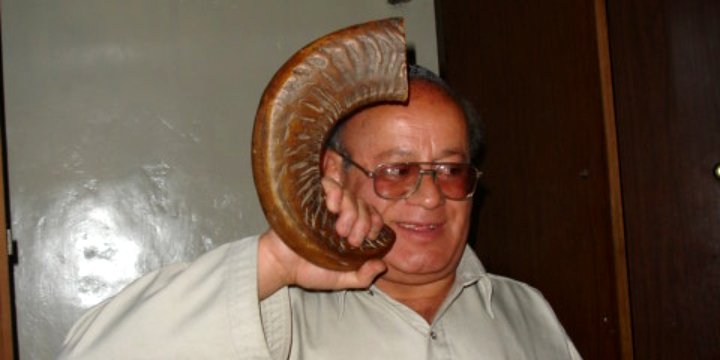US to restore UNRWA funding when it gives Palestinians $150m. - report
The Bidden administration is prepared to restore funding to the United Nations Relief and Works Agency (UNRWA) for Palestinian refugees, thereby reversing US president Donald Trump's 2018 decision to cut such assistance, Reuters reported on Wednesday.Exposing the EU and Palestinian Authority’s Plans to Takeover Judea and Samaria, and Jerusalem
US President Joe Biden had promised during his campaign for the presidency that he would resume such funding, but has yet to make good on his pledge.
Palestinian Authority Ambassador to the UN Riyad Mansour said he was pleased to hear from Reuters about the US policy change, when he spoke at UN event on UNRWA in New York on Wednesday.
Until the Trump era the US had been the largest single county donor to the UNRWA, spending over $350 million annually on the organization.
According to Reuters the State Department could announce the $150 million assistance package as early as Wednesday.
The Trump administration and many on the Israeli Right are opposed to UNWA, primarily because it classifies as refugees, descendants of some 750,000 Palestinians who fled their homes as a result of the 1948 War of Independence and who now live in east Jerusalem, the West Bank, Gaza, Lebanon, Jordan and Syria.
After a year of documentation, infiltration, and surveillance of Palestinian Authority senior officers, we reveal the European Union’s masterplan of taking over the Judea and Samaria Judea and Samaria Territories and Jerusalem
Photographic Evidence Shows Palestinian Leader Amin al-Husseini at a Nazi Concentration Camp
In 2017, Jerusalem’s Kedem auction house posted three of six previously unknown photos on the internet, in which the grand mufti of Jerusalem, Amin al-Husseini, inspects a Nazi concentration camp along with Nazi senior officials and government figures. According to the auctioneers, an expert was of the opinion that these inmates performed forced labor at the Trebbin camp near Berlin, which was, from 1942 to 1945, an SS artillery training place with a branch of the Sachsenhausen concentration camp in Oranienburg. Built after World War I as a Christian “City of Peace,” it was taken over by the SS in 1935. Among the prisoners were Jews from Hungary. Forced labor, terror and violence characterized their daily lives. Kedem hoped viewers would help identify men in the photos.True Grit in Lebanon
As it turns out, I can now shed light on five of the foreign guests in the pictures—global leaders whose presence reflects the transregional history between Europe, the Middle East, India, and America. The photographs also provide irrefutable proof that all of the men present had precise knowledge of the fate of Jews in Hitler’s Germany—and of the likely fate of Jews in their own home countries under Nazi rule. According to Kedem, the photos are stamped “Photo-Gerhards Trebbin.” This stamp indicates that they were probably photographed in Trebbin, 30 kilometers south of Berlin, “around 1943.” The six photos were auctioned for $12,300 to a private individual who, I would argue, should post the remaining three images on the internet as a humanitarian gesture to families of the prisoners.
Only three of the seven men pictured survived World War II and its immediate aftermath. The two German officials in uniform were both directly involved in the Holocaust. Before and after their trip to the camp, Adolf Hitler met separately with each of the foreign guests, who included the Palestinian leader al-Husseini, the former Iraqi Prime Minister Ali al-Kailani, the Croatian Ustasha ideologue Mile Budak, and the Indian Hindu leader Subhas Chandra Bose. So who were they?
When Mrs. Browning published “A Court Lady” 161 years ago, the contemporary concept of individual human rights did not yet exist. But we recognize its seed in the innate human drive to make right what is wrong not only in personal relationships, but in relations among nations. It is well we should remember Browning’s words at a time of renewal for human rights in U.S. foreign policy, for while applying human rights is rarely a straightforward exercise in a world of competing equities, values and interests do at times fully converge. The case of Kinda El-Khatib is one of those convergences.Pinsker Centre PodCast: Ep. 8 - Turkey on the World Stage: an Insider's Perspective - with Ceren Kena?r?
Kinda El-Khatib, a twenty-three-year-old Lebanese citizen from the northern province of Akkar, was arrested on June 20, 2020, by the internal security arm of the Lebanese Armed Forces (LAF). Sixteen masked men barged into her home and took her away to be interrogated at length, deprived of food for two days, denied counsel and contact with her family, and brought to a court-martial—though she is a civilian—without being apprised of the charges against her.
When finally informed of the charges in court—“violating the law boycotting Israel” and “communicating with enemy agents”—Ms. El-Khatib was astounded. The LAF indictment contained a scintilla of truth, several partial truths, and a bumper crop of outright falsehoods, including a purported trip to Israel and liaison with “agents” of several states.
What was Ms. El-Khatib’s real offense? She had been politically active on social media, accusing Hezbollah and its allies of responsibility for most of Lebanon’s governmental dysfunction, corruption, and suborning of its armed forces. Earlier run-ins as her popularity grew enabled her detractors to get permission to tap her phone. She was not intimidated.
Ms. El-Khatib’s efforts attracted the attention of an Israeli TV journalist. Roi Kais asked Ms. El-Khatib via Twitter to consent to a virtual interview, to be aired on Israeli media. She declined, but suggested Mr. Charbel El-Hajj, a dual Lebanese-U.S. citizen then living in Portland, Oregon, as an alternative. Mr. El-Hajj did the interview. Ms. El-Khatib had never personally met either Mr. Kais or Mr. El-Hajj. The LAF indictment’s only hint of truth is that she did communicate, albeit at a remove, with an Israeli.
Although Ms. El-Khatib was convicted of no crime, she was held in prison anyway awaiting trial. News of her arrest triggered a wave of protest by her sympathizers in Akkar Province. Still, on December 14 the LAF tribunal sentenced Ms. El-Khatib to three years’ prison and forced labor. (Mr. El-Hajj was sentenced in absentia to ten years’ prison and forced labor.)
Ceren Kenar is a Turkish journalist and columnist. In this week's episode, she sits down with Lawrence, the Associate Director of the Pinsker Centre, to discuss Turkish-Israeli relations, Turkey's role as a bridge between the West and East, and more.
Tune in to Counterbalance and listen to me and @makosloff discuss China, Iran, and the future of American Foreign Policy with @SecPompeo | https://t.co/WRp6OEG4Pu
— Mike (@Doranimated) April 7, 2021










































